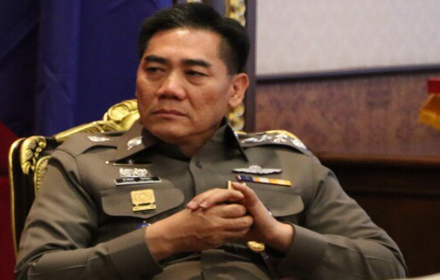Pol Gen Chakthip Chaichinda is no stranger to southern unrest problem
The newly-appointed national police chief, Pol Gen Chakthip Chaichinda, is no stranger to the southern unrest problem and to separatist groups in the restive region.

He was one of the police officers responsible for the arrest of five men suspected of involvement in the attack of Peeleng or Prince Narathiwatnakarind barrack in Cho Airong district of Narathiwat on Jan 4, 2004. Over 400 weapons, most of them M16 assault rifles, were robbed from an armoury at the barrack.
The five suspects were defended by Mr Somchai Nilapaichit, former president of the Muslim lawyers’ club. They later lodged a complaint with the Department of Special Investigation, accusing Chakthip, then a police major-general, and a handful officers, of subjecting them to torture in order to extract confessions from them.
The DSI later reported the case to the National Anti-Corruption Commission for an investigation which eventually cleared all the police officers of any wrongdoings as alleged. After that, the policemen sued the five suspects of making false accusations against them.
However, the charges against the five suspects were proceeded to the court. They were sentenced to two years imprisonment by the Narathiwat provincial court but the Appeals Court ordered their acquittals. The case is still pending with the Supreme Court.
During the trial of the five suspects, tragedies struck. Somchai, the defence lawyer, was allegedly kidnapped on March 12, 2004 and has never been seen since then. He was believed to be dead but his remains have never been found.
Pol Maj Ngern Thongsuk who was charged with involvement in the enforced disappearance of Mr Somchai disappeared without any traces following a mudslide incident in Phitsanuloke province. He was sentenced to imprisonment by the Criminal Court but was granted bail during the trial by the Appeals Court.
Abdulloh Arbukhari, a witness in the torture case against Chakthip and other policemen disappeared without any traces on December 11, 2009. His wife, Jihrorhani, was shot dead two years afterward.
Human rights advocacy groups however insisted that defendants had the right to ask for examination or investigation of the performance of duty of law enforcement officers and, in so doing, they should be protected by the law.
In other words, they maintained that the defendants, in this particular case, had the right to complain that they were tortured by the police investigators and they should not be sued later on by the police.
